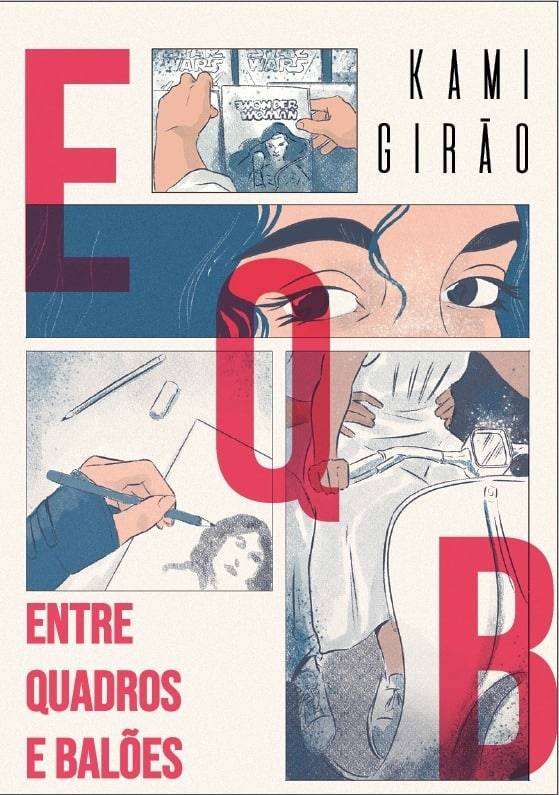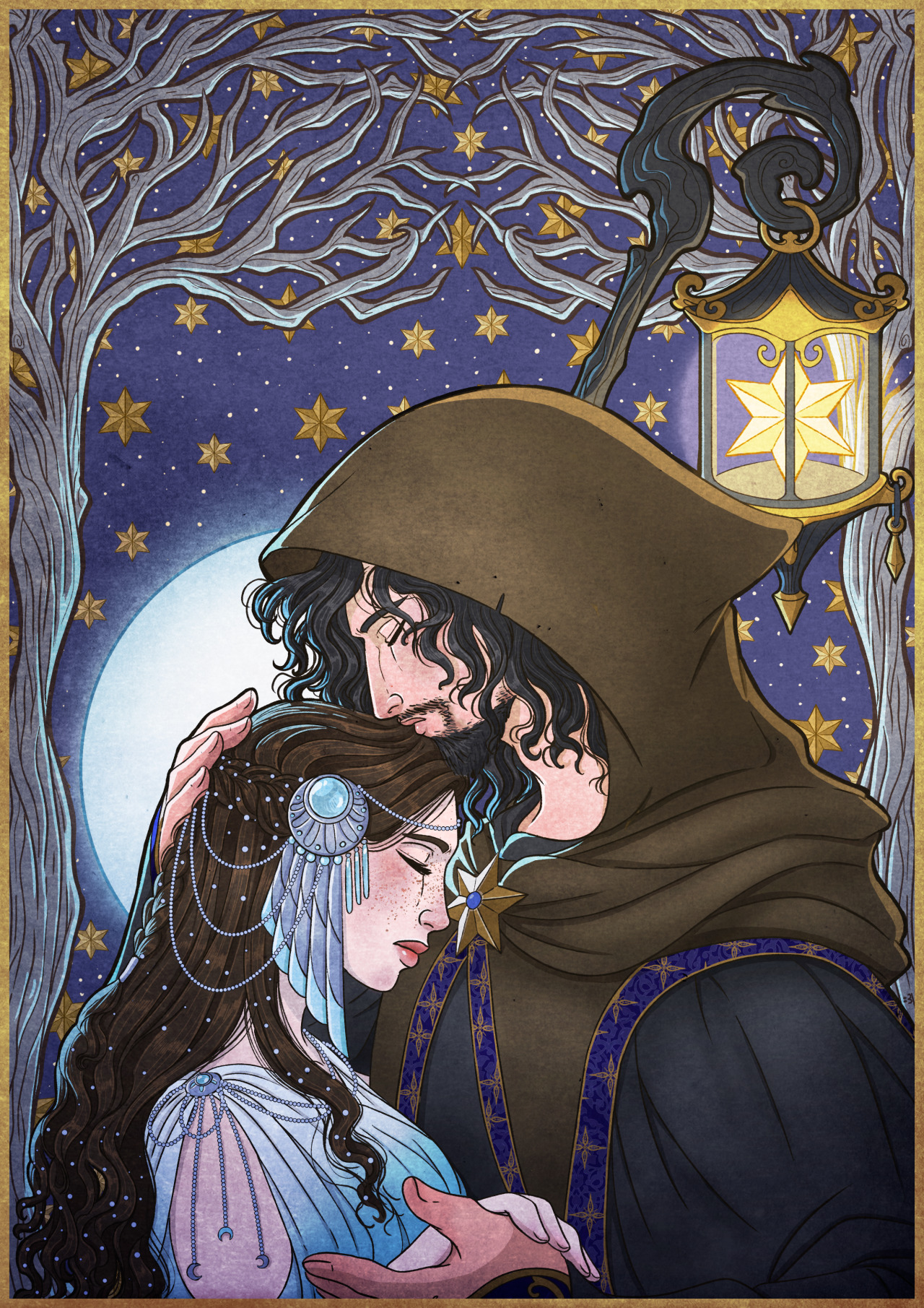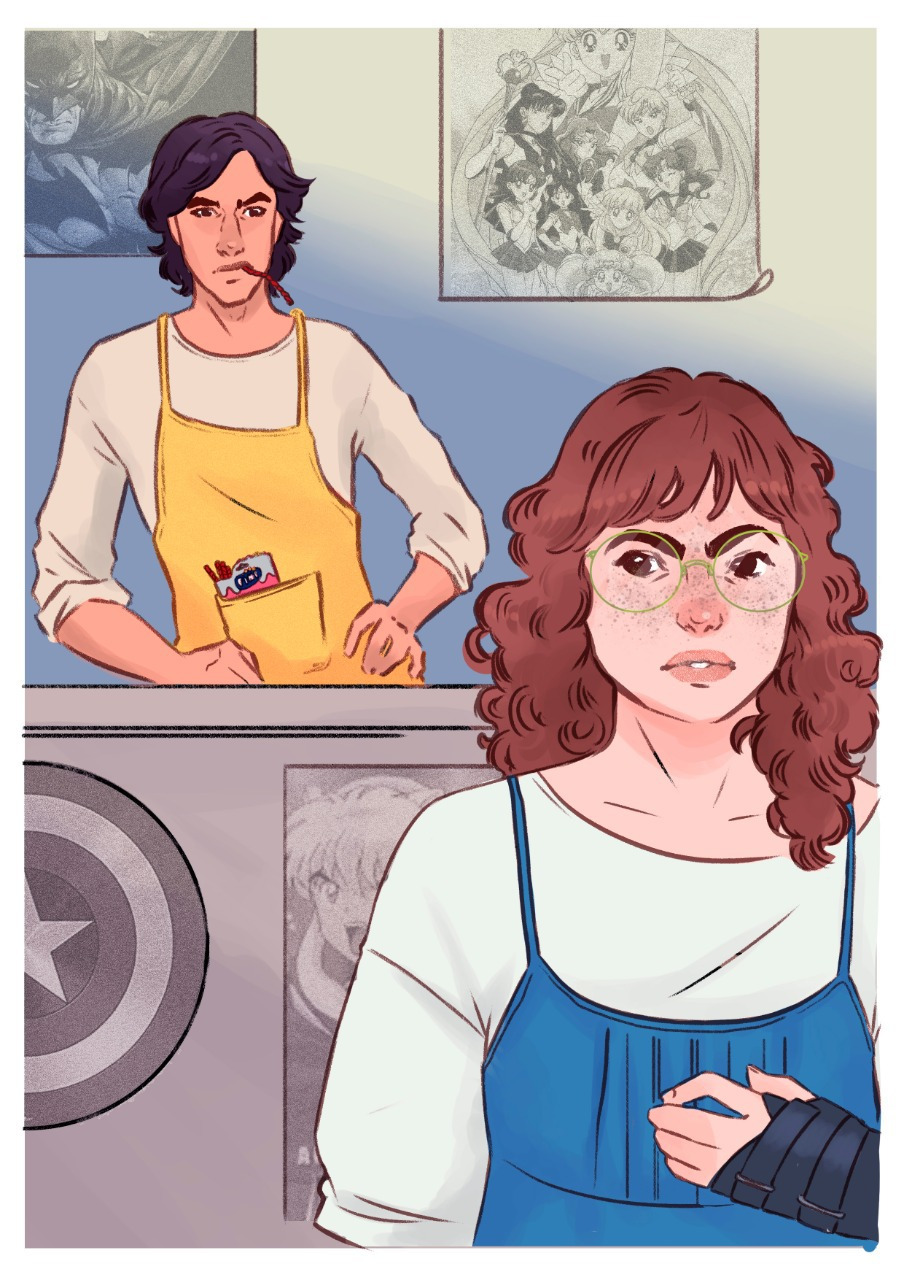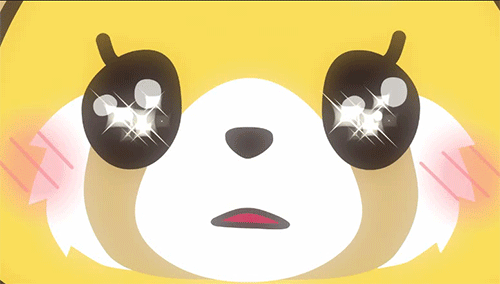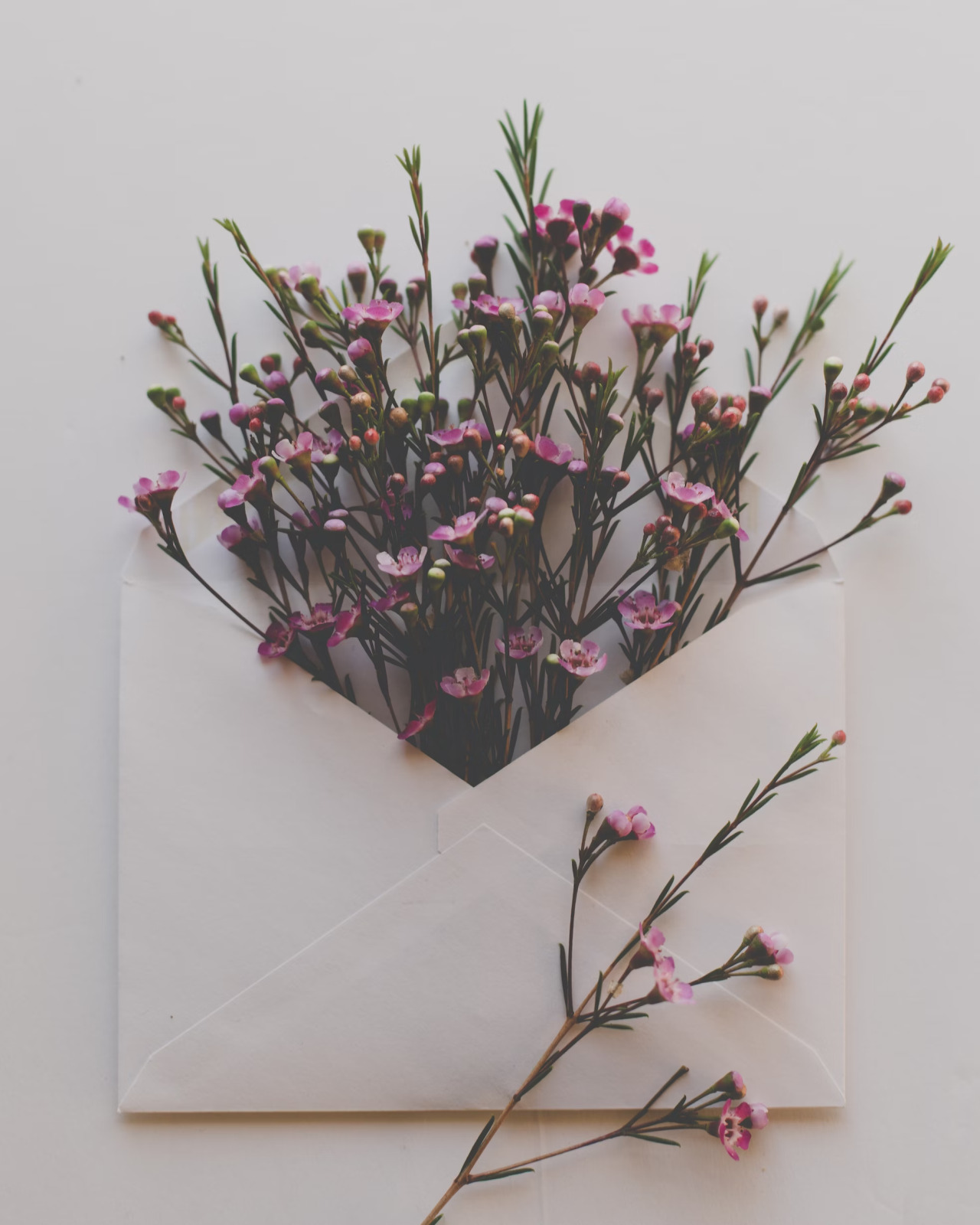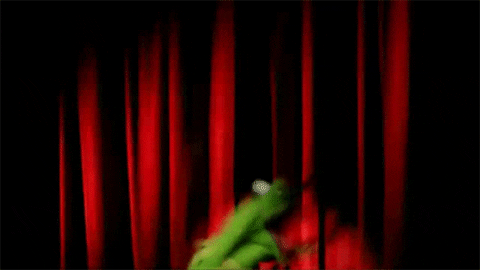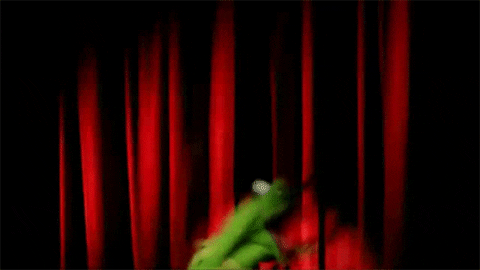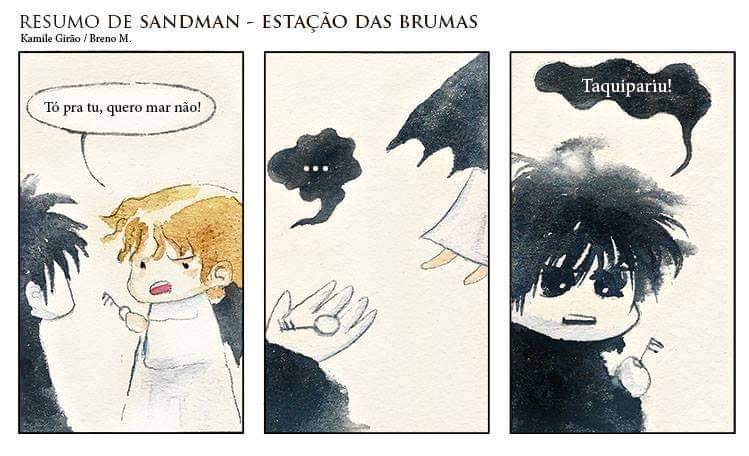

I’m taking some time to write things, not because I want to, but because it’s necessary. I haven’t been feeling well in the past few weeks, experiencing mood fluctuations. It’s been challenging to study, read, and write, especially writing, when my self-energy is so high. So, I’ll take it step by step.
Between Strokes and Panels - The old cover - Art by Valdir Marte
Betweem Strokes and Panels - The Moon and The Hermit. Art by @erikailustra.
Between Strokes and Panels - Art by Valdir Marte
Lets the phase of Query Letters begins!
In 2012, I wrote on my sketchbook: “translate Yume.” Yume was my first published book, realised in 2011, but even that year, I had no one publisher house for breach of contract (thanks Lord), and my ideas were too underground. I imagined that the broad market for speculative fiction was easier, or even though receptive, than in Brazil. I had hope, but no guidance.
Eleven years after, with two more books on my LinkedIn page, I came back to this sketch and to this note. I’ve never forgotten this desire, but in the same way, I won’t make any progress. Kind of auto-sabotage, kind of fear. The point is: maybe I’m ready. Maybe this is the right time to put the things on the order and starting to write in a language that doesn’t belong to me. I’m not 19 anymore, full of ideas and dreams, although with zero autonomy.
I have the texts, two of them in Portuguese (these two will be translated because it’s more practical for me) and other projects which will be written in English, even I have less practice and fluency yet. While this, I’m writing some query letters, studying their formats and prating to send when the time will come (and it will come, I’m just waiting for the translation of my works). Maybe this should be the scariest part of the process - because it is the first step of all.
Query letters, at first sight, seemed a bit scary, it’s true. Mainly because you want to do your best with the letter, but at the same time, it needed to be a funny process. My entire publish case in Brazil was not happy, and this one will need to be different in some way. It’s an opportunity to know new things, new people and new thoughts.
So, I want to write more about it here, on Tumblr. Let’s make some fun and enjoy all the process. See you!
Desisti de muitas coisas nesse ano - e nessas muitas coisas das quais fui colocando na caixa de despejo, uma foi a escritora que fui. Foram onze, quase doze anos, insistindo muito por um reconhecimento que não veio. Um livro publicado em 2012, às custas de muito esforço e pouca maturidade, seguido de outro nos mesmos moldes. Um terceiro que trouxe dor, mas tanta que carrego queloides onde não deveriam existir feridas. Passagens por eventos, nome estampados em jornais, em editais, em bibliotecas. Ainda assim, era como se estivesse começando agora, iniciante que desse suas primeiras passadas em páginas cheias de aventuras, aprendendo o abecedário.
Doze anos é época de pré-adolescência. Você cansa de ser quem foi e quer ser outra pessoa. Quer ser diferente dos seus pais, encontrar um rosto para chamar de seu ao olhar no espelho. E eu entendi que o caminho que estava seguindo, procurando pelo olhar complacente de pares e de nomes de hierarquias, não me cabia mais. Pré-adolescência tem dessas coisas, primeiras rebeldias. Tem-se o tempo para crescer, para virar outra pessoa. Tem-se tempo para tudo.
Tem tempo para dar adeus também. E apreciar esse novo que chega não de mansinho, mas com os dois pés na porta, sem aviso.
Finishing a project
@sixteenmilesout | Via Unsplash
Yesterday, I put a full stop on my last project, which I usually called EQB in Portuguese (there is no name in English yet). The book project is like a Frankenstein, with many texts pretending to tell a story.
There was no more I could do without help. I’ve written and rewrote the same words for three times. I’ve known the characters as my paper kids, my similes, pages destined for them during the pandemic. There was my safety, my chance to not lose my mind during these dark days. And, yesterday, I understood: I needed to tell goodby for them, let them go.
[writting] We’ll be fine
I got into a creative block. Just when, in theory, I shouldn’t have, when editing the project I call EQB, I panicked at the sight of a Google Docs page. For those who don’t know, I submitted EQB to a call for proposals, and I am still waiting for an answer, and this fact, added to a pathological anxiety and a severe self-imposed charge, fried my few neurons still in activity. Many fears crossed my mind - and they are still here: what if this project does not sell? What if I run out of books here at home? What if people don’t like it? What if it is bad? What if…?
In the meantime, I learned to crochet from my friend Luan, who taught me very willingly and helped me a lot. However, it didn’t solve anything. Having a new activity relieved the pressure of dealing with the page to be edited, but postponed the moment of confrontation. Sometimes I exchanged words for lines, for braids that seemed to work much better than sets of paragraphs that made no sense to me at all. But if I intended - and I intend - to pass an edict, I had to face my fear, even under pressure. This is how I returned to the world of Becca Syme.
For those who don’t know her, Becca Syme is a writer’s coach (yes, coach) - and, contrary to what we see around, she is a highly responsible professional who considers the difficulties of the market and the profession before guiding her coachees. I discovered Syme through Zoe York’s work and soon gave the first books in her Dear Writer, You Need to Quit series a try. They are very short works, with premises that plague any writer, but with absurdly simple resolutions, the kind you stop to ponder “why didn’t I think of this before?” And Becca is not a meritocratic author, far from it. She considers the multiple realities, which made her a very dear professional to me.
She was, therefore, the one I turned to when I found myself in a block and as frightened as I was. The book I picked up was Dear Writer, Are You In Writer’s Block? And it was like getting a hug, which welcomed my dread and said, “this is really happening to you, but don’t worry it’s okay.” Among many helpful pieces of advice, like metaphors with rye fields that need seasons without planting to renew the soil, there was one in particular that touched me deeply, another one of those extremely simple but not often thought about.
“I’ll be fine.”
Did it get a negative review? “I’ll be fine.” Didn’t sell like you would have liked (being, of course, a writer person who doesn’t depend on writing for a living)? “I’ll be fine.” The feedback didn’t come out as positive as expected? “I’ll be fine.”
As I said, it’s a simple premise, yet it’s not a reinforcement that comes to mind when things degrade to the downside. Let’s stay whole if nothing works out if our expectations are not met. Because, as Syme herself says:
That “parental” soothing voice is really important to engage in these moments because in order to flatten out that
spiral, we need to deconstruct the premise of the fear. We can’t agree with it.
The literary market, like any other, is brutal, but what’s the point of treating ourselves with similar severity? The trap of creative blockage exists, and it can be an unwanted pruning of our ideas - because sometimes, as Becca Syme herself points out, the mind asks for a rest, and blockage comes as that body’s response to tasks.
Questioning fear, common assumptions, and rebutting what hurts us with that more malleable voice may not be a key, but it is a way to face what hurts us. And above all, to be sure: we will be fine at the end of the journey.
[escrita] Nós vamos ficar bem
Entrei em bloqueio criativo. Justo quando, em tese, não deveria, no momento da edição do projeto a que chamo de EQB, peguei pânico de ver uma página do Google Docs. Para quem não sabe, submeti EQB a um edital e aguardo retorno, e este fato, somado a uma ansiedade patológica e uma severa cobrança autoimposta, fritaram meus poucos neurônios ainda na atividade. Muitos medos me atravessavam - e ainda estão por aqui: e se este projeto não for vendável? E se encalhar livro aqui em casa? E se as pessoas não gostarem? E se estiver ruim? E se…?
Nesse meio tempo, aprendi a fazer crochê com meu amigo Luan, que me ensinou de muito boa vontade e me ajudou bastante. Porém, não resolveu. Ter uma nova atividade aliviava a pressão de lidar com a página a ser editada, mas postergava o momento do confronto. Por vezes, troquei as palavras pelas linhas, pelos entrançados que pareciam funcionar muito melhor do que conjunto de parágrafos que não faziam, aos meus olhos, sentido algum. Mas se eu pretendia - e pretendo - passar em um edital, precisava encarar o meu pavor ainda que sob pressão. Foi assim que voltei ao mundo da Becca Syme.
Para quem não conhece, Becca Syme é uma coach (sim, coach) de escritores - e, ao contrário do que vemos por aí, é uma profissional altamente responsável e que considera as dificuldades do mercado e da profissão antes de sair orientando seus coachees. Descobri Syme através do trabalho da Zoe York e logo dei uma chance aos primeiros livros da sua série Dear Writer, You Need to Quit. São trabalhos bem curtos, com premissas que afligem qualquer pessoa escritora, mas com resoluções absurdamente simples, daquelas que paramos pra refletir “por que não pensei nisso antes?” E Becca não é uma autora meritocrática, longe disso. Considera as múltiplas realidades, o que a tornou uma profissional muito querida para mim.
Foi, portanto, a ela a quem recorri quando me percebi em bloqueio e tão amedrontada como eu estava. O livro que peguei foi o Dear Writer, Are You In Writer’s Block?, bastante condizente com a minha realidade. E foi como receber um abraço, que acolhia o meu pavor e dizia: “isso realmente está acontecendo com você, mas não se preocupa que tem jeito.” Dentre muitos conselhos úteis, como metáforas com campos de centeio que precisam de temporadas sem plantio para renovação do solo, existiu um em específico que me tocou profundamente, outro desses extremamente simples, mas que não pensamos com frequência.
“Eu vou ficar bem.”
Recebeu resenha negativa? “Eu vou ficar bem.” Não vendeu como gostaria (sendo, é claro, uma pessoa escritora que não depende da escrita para sobreviver)? “Eu vou ficar bem.” O feedback não saiu tão positivo quanto se esperava? “Eu vou ficar bem.”
Como eu disse, é uma premissa simples, porém não é um reforço que vem à cabeça quando as coisas degringolam para o lado negativo. Vamos continuar inteiro/a/es se nada der certo se nossas expectativas não forem atendidas. Porque, como a própria Syme fala:
That “parental” soothing voice is really important to engage in these moments because in order to flatten out that
spiral, we need to deconstruct the premise of the fear. We can’t agree with it.
O mercado literário, como qualquer outro, é brutal, mas a que custo adianta tratarmos com severidade similar nós mesmo/a/es? A armadilha do bloqueio criativo existe e pode ser uma poda não desejada às nossas ideias - porque às vezes, como a própria Becca Syme salienta, a mente pede um descanso e o bloqueio vem como essa resposta do corpo às tarefas. Questionar o medo, as premissas comuns e rebatermos o que nos machuca com essa voz mais maleável pode ser não uma chave, porém é um caminho para enfrentarmos o que nos dói. E acima de tudo, termos a certeza: vamos ficar bem ao final da jornada.
